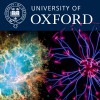Simulating physics beyond computer power
Since their birth computers proved invaluable tools for physics research. Quantum mechanics, however, fundamentally challenges the possibility for computers to simulate dynamics of matter. In fact, solving the quantum-mechanical law of motion requires to account for contributions of all possible joint configuration histories of all constituents of a system: a task that quickly becomes unbearable for any imaginable computer. Our understanding of complex phenomena involving important quantum-mechanical effects, such as chemical reactions, high-temperature superconducting materials, as well as the primordial universe evolution, is obstructed by this fundamental technological limitation.




